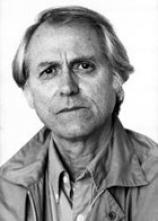Zero K
Review
Zero K
Don DeLillo has written for more than half a century, producing 17 novels. He often captures and anticipates events on the pages of his books that reflect American culture in ways few writers can equal. I first read DeLillo years ago, drawn to his second novel, END ZONE, which still perfectly captures the evils of college football and the metaphor of football as war despite having been written 30 years ago. Jennifer Egan, in her presentation of the Medal for Distinguished Contribution to American Letters to DeLillo, observed, “His work is astounding, made of stealthy blessings… It proves to my generation of writers that fiction can still do anything it wants.”
"One hopes that [DeLillo] has at least one more novel to present, but if ZERO K should be his final book, it will be one of consequence and style."
ZERO K takes place in the Convergence, a cryogenics compound somewhere in Kyrgyzstan. In its opening paragraphs, Jeffrey Lockhart, the son of billionaire Ross Lockhart, is driven to the compound in an armored vehicle accompanied by security personnel. Ross’ younger wife, Artis, has a terminal disease. He is a significant investor in the secretive compound where death is delayed and bodies are preserved until medical advances can return individuals to improved lives. This is the plan Ross has for his wife. “We are born without choosing to be. Should we have to die in the same manner? Isn’t it a human glory to refuse to accept a certain fate?” This is the question DeLillo asks here, the question that Ross has answered in his mind but Jeff will ponder throughout these pages.
Having traveled across the globe to be with his father and stepmother in her last days, Jeff has substantial time to explore the facility that his father has bankrolled. The building, its inhabitants and their reluctance to provide him with any information only add to his skepticism of what is happening here. As he explores, he knocks on one door and a man answers in a turban and tie. Apologizing, Jeff says, “I must have the wrong door.” “They’re all the wrong door,” the man replies. Jeff discovers that the Convergence is more than cryogenics --- it is proactive technology designed to heal and improve the body. Artis is prepared for cryopreservation as Jeff and Ross observe. What constitutes the end? When does the person become the body? DeLillo reminds us that these questions have been debated by doctors, lawyers, theologians and philosophers for centuries with no answers in sight.
In the second part of ZERO K, two years have passed since Artis’ “death.” Jeff has returned to New York and has found a romantic interest. DeLillo brings readers back to the modern world and its difficulties. The real-life aspects of this portion of the book serve as a reminder of what is actually lost when death occurs. The novel moves towards its surprising ending with consequences for Jeff, Emma and her adopted son. In the end, readers must face the cruel fact that it doesn’t really matter how death occurs. Obviously, there is little we can do other than accept its inevitability.
Don DeLillo is approaching 80. His novels have been some of the finest of the past 50 years. He writes without manipulating his readers with literary gimmicks. But every sentence he places on the page, just as every brush stroke in a masterpiece painting has meaning and impact. One hopes that he has at least one more novel to present, but if ZERO K should be his final book, it will be one of consequence and style.
Audiobook available, read by Thomas Sadoski
Reviewed by Stuart Shiffman on March 9, 2016
Zero K
- Publication Date: May 3, 2016
- Genres: Fiction
- Hardcover: 288 pages
- Publisher: Scribner
- ISBN-10: 1501135392
- ISBN-13: 9781501135392





